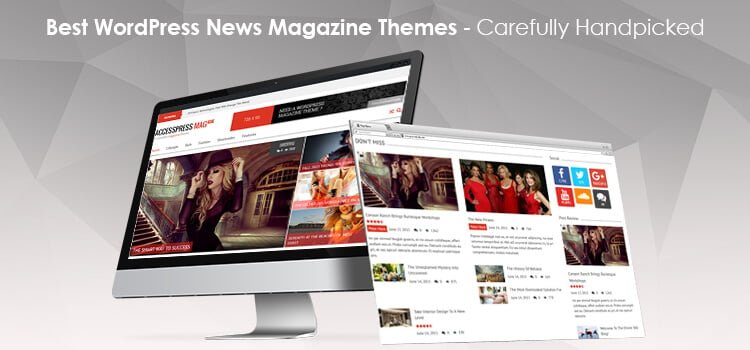Meta titles play a crucial role in SEO, acting as the first introduction of your website to both potential visitors and search engines. Think of them as the initial handshake or smile that can either draw people in or push them away. Crafting compelling meta titles is an art that can significantly increase your website’s visibility in search results, enticing more users to click through to your site. To maximize your online presence, it’s essential to master the creation of meta titles that captivate both audiences and search engines, positioning your site as a preferred choice. This guide aims to equip you with the skills to write meta titles that not only attract clicks but also enhance your website’s appeal, making it a magnet for traffic. Embrace these tips for proven SEO services to ensure your content stands out in the crowded online space, drawing more visitors to your website and elevating its status in search rankings.
The Essence of Meta Titles
Meta titles, or title tags, are short bits of text you see when you search online, on browser tabs, and when someone shares a page on social media. They are made using HTML, a computer language, to give a quick idea of what a webpage is about. These titles are not just simple labels; they are essential. They help search engines understand and organize your webpage. This can affect where your page appears in search results. So, if you want your webpage to be easy to find, you must pay attention to meta titles. They are vital to making your website more visible on the internet.
Crafting Captivating Meta Titles: Best Practices
To weave the magic of meta titles effectively, follow these best practices:
- Be Descriptive and Concise:
Aim for 50-60 characters to ensure that your titles are fully displayed in the search results.
Describe the page content, precisely to entice users to click - Incorporate Target Keywords:
Place the important keywords at the beginning of the title for better visibility.
Choose keywords that accurately reflect the page content and match user intent. - Brand Your Titles:
Include your brand name, especially if it’s well-recognized, to enhance trust and recognition.
Consider placing the brand at the end of the title to prioritize descriptive keywords. - Avoid Duplication:
Craft unique titles for each page to avoid content dilution and confusion for users and search engines.
Tailor each title to the specific content and purpose of its page. - Invoke Curiosity and Value:
Use action words and value propositions to make your titles more enticing.
Pose questions or challenges that your content answers or addresses.
The Spellbinding Elements of Effective Meta Titles
1.Clarity and Relevance:
Your meta title needs to be like a clear snapshot of what’s on your webpage. It should tell people and search engines exactly what to expect. If your title matches the content of your page well, both users and search engines will like it more. This means your title should be right to the point and honest. People clicking on your page should find what the title promised them. Search engines use this title to figure out if your page fits what someone is searching for. So, a good, clear title can help your page be the one people choose to visit.
2.Emotional Pull:
Adding feelings to your titles can make them more interesting. Using words that make people curious, excited, or feel like they need to act fast can make more people click on your title. When titles make people feel something, they are more likely to want to find out more. This means they’ll click on your link to see what’s inside. Words that spark questions or get the heart racing can be really powerful. For example, words like “discover,” “amazing,” or “last chance” can grab attention. So, if you want more people to visit your webpage, think about how your title can make them feel something strong.
3.Keyword Optimization:
Putting the right keywords in your title is vital, but putting too many can be bad. You must find a good balance. Your title should sound like something a person would say and be helpful. If your title is just a bunch of keywords thrown together, it won’t sound appealing or make sense to people. Search engines might not like it as well either; because they prefer titles that are clear and make sense. So, once you write your title, think about what a reader would want to read. A good title has the important key words but also sounds interesting and helpful, prompting someone to click.
4.Adaptability:
Your meta titles need to work well everywhere, from search engine pages to when people share them on social media. They should fit in and look good no matter where they show up. This means the message in your title should be clear and stay the same across different places. When your title is the same everywhere, it helps people understand what your content is about. It’s like telling the same story everywhere, which makes your main point stronger. This way, whether someone finds your page through a search or sees it on a social network, they get the same idea of what you’re offering. Keeping this consistency helps make your content’s message and value clear to everyone, no matter how they come across it.
Enchanting Examples: Meta Title Magic in Action
- Before: “Home Page – John’s Bakery”
- After: “Fresh, Homemade Bread Daily | John’s Bakery – City Name”
- Before: “Blog – Tips for Gardening”
- After: “10 Expert Gardening Tips for Thriving Plants | GreenThumb Blog”
- Before: “Product Page – Women’s Shoes”
- After: “Stylish & Comfortable Women’s Footwear | Spring Collection 2024”
Continuous Refinement: The Art of Meta Title Optimization

Making strong meta titles is something you need to keep working on. It is essential to watch how well your titles are doing, looking at how often people click on them and where they appear in search results. You must be ready to change and try new ideas to see what works best. This means testing different titles to see which ones your audience likes and which fit well with how search engines understand and rank your content. It’s all about finding the right balance that attracts people and search engines. This process can take some time and might need several tries to get it right. But, by paying attention and being willing to adjust, you can create titles that stand out.
Conclusion
Meta titles have a special power to make people want to click and visit your website. When you make titles short, full of important words, different from others, and touch people’s feelings, you really help your website stand out online. Think of a meta title as the first thing someone sees about your content. You should make sure it’s clear, clever, and well-thought-out. This can change how you do SEO and help your website do better in the digital world. Use the magic of good meta titles to take your website to the next level. With the right titles, you can draw more people to your site and get better results.
Interesting Reads:
Top Rated WordPress Directory
Top 10 Best Night Club WordPress Themes To Give Your Site A Party Theme
How Can You Add Parallax Effect to Your Site Using the Gutenberg Editor?








